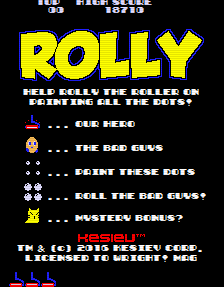Rolly
Action Maze, © KesieV 2016

Why videogames can be so rewarding?
Mostly because they have years of history on improving how to motivate its customers on keep playing and having fun. Starting from the early days of pinballs, a lot of blinking lights and a loud short jingle can put the player under the spotlight of a crowded arcade room for a short while, giving him its '5 seconds of glory'. Pumping up the player score to billions when performing a particularly difficult task, in order to replace the current high score and becoming 'better than others', is a good way of tickling the player sense of competition, incentivizing them on going back for more.
The proverbial 'extra ball', that will become the 'extra life', gifts the player with more play time, which means longer sessions, higher scores but also more value for player's money - remember that pinballs and arcade games were coin operated: the longer you play the less you spend. Videogames weren't tied to the ball behaviour, button-only interactions or a single table design but they had complex controls, multiple scenes with different contents and variable interactivity and difficulty. The opportunities to tie the player are now unlimited.
Starting over a game with faster gameplay, which is the grandfather of modern 'New Game+', was a very smart and cheap way for making the player feel to have joined the 'Elite of Great Players', which doesn't play like the others. The high-score concept was refined, so in high-score tables there is room for losers too: once you've lost the lead, you can keep your name between the losers and disappear forever or give it back its glory. With another play.
But videogames can gift player with something unprecedented, due to its interactivity: more contents. So you can unreveal a pretty picture of a landscape (or a naughty girl, in most of the cases) after clearing a stage, like in Gals Panic (1990) or, mostly because of the strong influence of movies, watch a short and funny animation from time to time, like Pac-Man (1980) intermissions. When videogames started to have a clear plot, these short animations became the key: they may be used to reward the player with a little slice of a story. So Jr. Pac-Man (1983) hosted a short series of episodes which tells its love story with a tiny ghost (?) made with in-game graphics and laserdisk games, like Bega's Battle (1983), had full anime cutscene (and sadly shallow gameplay).
Home consoles and computers allowed longer play sessions, thus different rewards: with different cutscenes that can be seen ending the game in different ways, like in Metroid (1983) or replacing old contents of the game with something new after the game end, creating a post-game scenario like in Dragon Warrior II (1987).
Nowadays, we have achievements. Microsoft introduced them with its XBOX 360 in 2005: when the player does something noticeable in a game he is rewarded with an in-game notification, a digital badge and some points. All badges and the grand total of the collected points from all the games he played are collected in its profile, available for others player to see and compare. Now videogames can give the player an identity: how much he's skilled, which games he likes and how deep he knows its games. Well. Atari introduced achievements way before in 1983, when used to send back Boy Scout like badges to every player sending tv screen photos of their highscores by mail.
Anyway, the progresses on rewarding people made by videogames are so recognized that the real world is adopting some of them, with phenomena like gamification (achievements in real life), and in some ways, reality shows (score-based evaluation of partecipants prized with short bursts of notoriety). Probably because videogames are often designed around people, not gamers.
Plot!
Help Rolly the roller on painting all the dots! Use A BUTTON for starting and UP/DOWN/LEFT/RIGHT for moving Rolly around the maze! For the occasion, I've changed Wright! a lot in these days: try selecting 'Canvas' on the Renderer option and then 'Retro CRT' one on 'Screen filter'!
(Want to share something? You can find me on Twitter!)
 Install / Add to home
Install / Add to home
 View game sources
...or play it online below!
View game sources
...or play it online below!